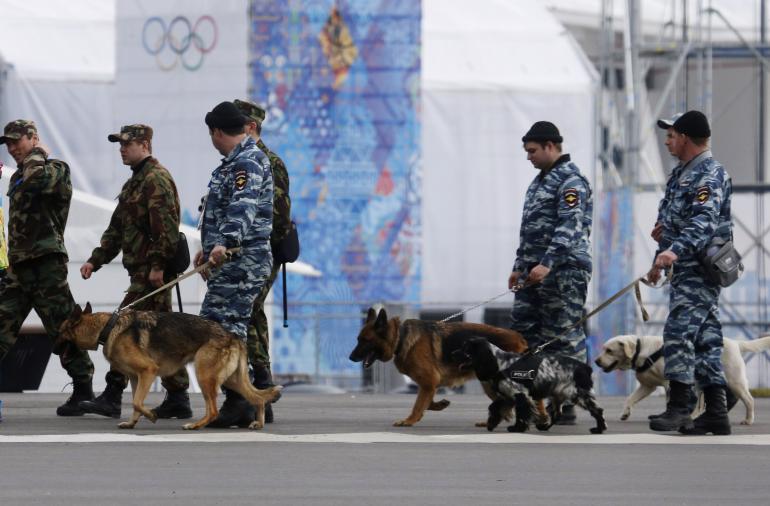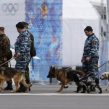
With Sochi Games Approaching, Moscow Imposes New Restrictions on Personal Freedoms in the North Caucasus
Publication: Eurasia Daily Monitor Volume: 11 Issue: 21
By:

On January 29, the Memorial human rights center reported that the police in Dagestan had compiled lists of Salafis and required people on such lists to notify the authorities when they intend to travel outside the republic. Suspected Salafis are required to submit such notifications three days prior to travel. The applicant must include on the form the purpose of travel, type of transportation used and whether they will have any passengers traveling with them.
Memorial’s representative in Dagestan, Yelena Denisenko, told the Kavkazsky Uzel website: “I have such a list from Gubden [a village in Dagestan’s Karabudakhkent district] and it contains 64 names. Who compiles these lists is unknown, but it is clear that some law enforcement agencies are behind them.” Denisenko alleged that there was at least one case when a female was prevented from leaving Dagestan because she had not asked for permission to leave the republic. So far, reports about restrictions on the movement of suspected Salafis have come from two districts in Dagestan—Karabudakhkent and Buinaksk. Police in Buinaksk warned the local Salafis that they should not leave the city from February 1 until the end of the Olympics in Sochi. Sources in the Karabudakhkent police confirmed to Kavkazsky Uzel that the police officers were spreading notification forms among suspects, but said they were doing so to relieve the suspects of additional security checks once they are outside the republic (https://www.kavkaz-uzel.ru/articles/237399/).
The Sochi Olympics are increasingly associated in the North Caucasus with novel ways the Russian government is restricting the freedoms of the local residents. Various restrictions on movement of residents of the North Caucasus—specifically, of Dagestan, Chechnya and Ingushetia—have become one of such novelties. Earlier reports suggested that people from Ingushetia could not travel to Krasnodar region, where the city of Sochi is located, without receiving official permission from the authorities.
Russian policy in the North Caucasus has taken especially peculiar forms in the run-up to the Sochi Olympics, establishing a virtual border between the region and the rest of the country. Even though the Olympics are often assumed to bring numerous benefits to the host country, the Olympics Games in Sochi appear to be bringing more trouble to the North Caucasus. In fact, the restrictions that the Russian government invented may remain in place after the Olympics. According to Kavkazsky Uzel’s source in the Karabudakhkent police, the actions of the police were not connected to the Olympics and would continue afterwards (https://www.kavkaz-uzel.ru/articles/237399/).
Despite the international community’s attention to the North Caucasus in light of the coming Olympics, the region has remained a difficult territory for foreign journalists to gain access to. On January 29, a journalist with the French newspaper Le Figaro was briefly detained in Dagestan after he attempted to interview the sister of Zarema Bagavutdinova, who Memorial regards as a political prisoner (https://www.kavkaz-uzel.ru/articles/237409/).
The international community has largely remained silent on the Russian government’s latest initiatives in the North Caucasus. The primary reason for other countries’ complicity is that they understandably care about the safety of their citizens who will travel to Sochi and approve whatever it takes to improve a security regime in the area. At the same time, the recent bombings in Volgograd and killings in Stavropol region provided some evidence that the security threat to the Olympics in Sochi is real, although the investigation of all of those attacks have remained highly controversial.
On January 30, the Russian National Anti-Terrorist Committee (NAK) reported the arrest of people in Dagestan who were connected to the Volgograd twin bomb attack in December 2013 that claimed the lives of 34 people. NAK also announced the names of the suicide bombers that carried out the attack. Asker Samedov and Suleiman Magomedov are believed to have wrought the two psychologically devastating attacks on the city of Volgograd (https://www.interfax.ru/russia/news/354905). Reportedly, the two individuals belonged to the Buinaksk group of militants. On January 29, brothers 21-year-old Magomednabi and 20-year-old Tagir Batirov were arrested in the suburb of Makhachkala, the town of Semender, for helping the suicide bombers to travel to Volgograd (https://www.kommersant.ru/doc/2395933).
NAK’s representative asserted “for security reasons, their names were not previously officially publicized.” However, the credibility of the Russian security agencies was seriously questioned after they changed their opinion about the perpetrators of the attack several times. Initially, the authorities announced that female suicide bombers carried out the attacks in Volgograd. Later they switched to another explanation that a certain Russian convert to Islam, Pavel Pechyonkin was the suicide bomber. So, it is unclear whether the latest version of the attack is the final or it will also change (https://www.gazeta.ru/social/2014/01/30/5875781.shtml). Judging by the restrictions on the movements by Salafis and other potentially hazardous individuals in Buinaksk, the authorities actually believe that members of the Dagestani insurgency were behind the Volgograd attack.
While solving in part the security issues in Sochi by implementing restrictions on the movements of broadly defined hazardous population categories, Russian government also draws the line separating the North Caucasus from the rest of the country. The solution may look attractive to the security officials, but the price for such a solution is that the North Caucasus is de facto becoming increasingly less and less associated with the Russian Federation.




